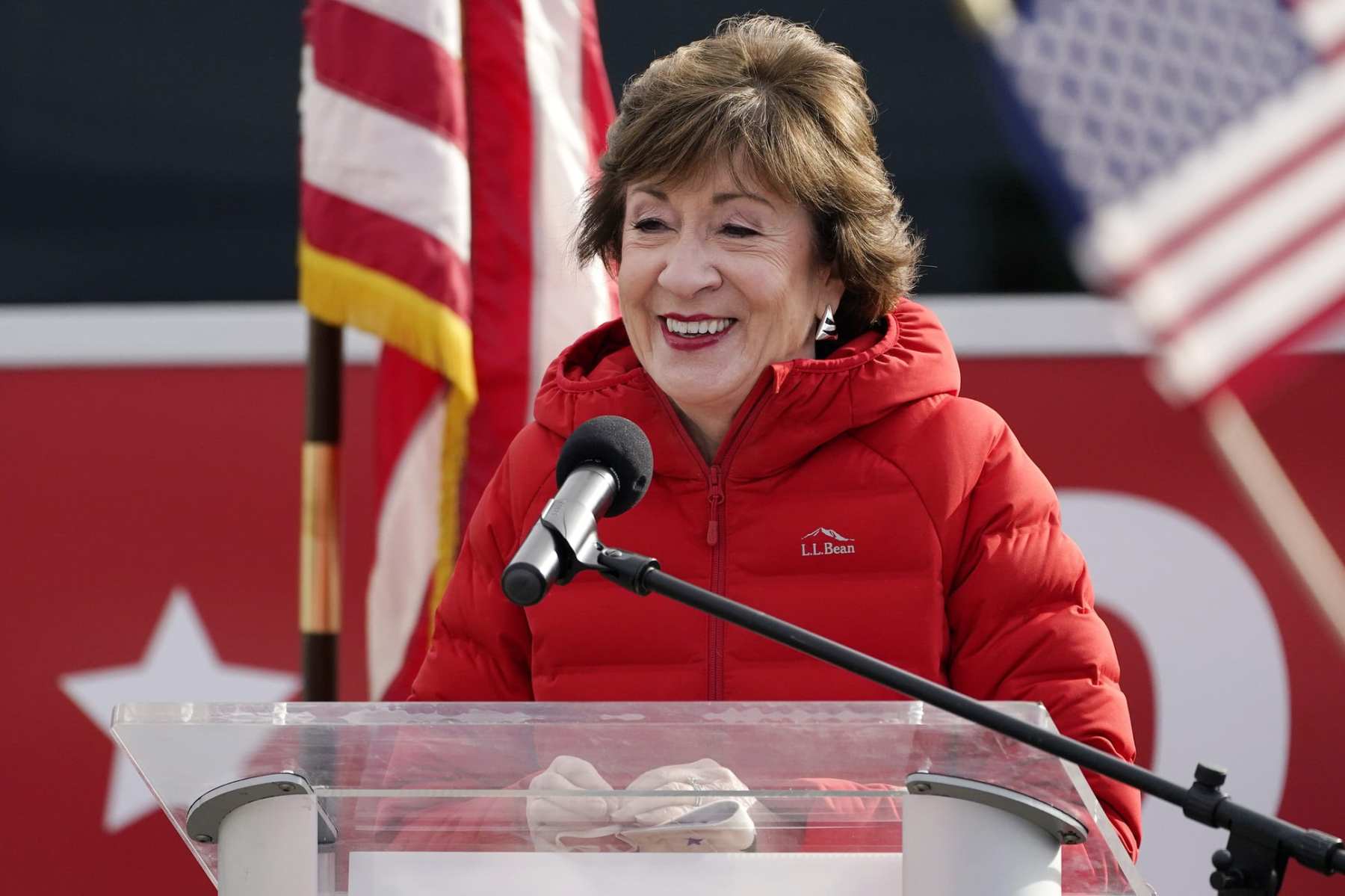For two years, Maine Republican Sen. Susan Collins was in Democrats’ crosshairs. With control of the Senate at stake, they believed ousting Collins in the 2020 elections would ease their party’s path to control of the upper chamber.
And for much of that time, Democrats appeared to be on track.
For months ahead of November, not a single public poll showed Collins winning reelection to a fifth term. Money poured into the election — nearly $200 million was spent on what became the most expensive race in the state’s history — with the influx from state and national groups disproportionately benefitting Democratic challenger Sara Gideon, Maine’s outgoing statehouse speaker.
Then came the upset. Collins, who has served in the Senate for 24 years, beat Gideon by 9 points. She was the only Republican senator to win reelection in a state where Joe Biden beat Donald Trump, and she did so by outperforming the president in all of Maine’s 16 counties. In a year when Maine’s newly implemented ranked-choice voting system was thought to be a liability for Collins, she prevailed by winning more than 50 percent of the vote on first tally, avoiding an instant runoff election.
“The fact that she was able to outperform Trump here doesn’t surprise me at all,” said Mark Brewer, a professor of political science at the University of Maine. “What did surprise me is that Susan Collins was able to get more than 50 percent on the [first] round — I thought what was going to cost her was ranked-choice voting.”
She remains the last Republican senator in New England and is the longest-serving Republican woman in the Senate’s history. She is also the only senator who has won three races when her state backed the presidential candidate of the opposite party: Bill Clinton in 1996, Barack Obama in 2008 and Biden in 2020.
Maine’s Senate race has become a cautionary tale for Democrats about the limitations of polling, money and out-of-state influence. The race has also become a potentially winning playbook for Republicans in states where moderate voters are rejecting Trump’s imprint on their party.
Many of Maine’s voters, Republicans in particular, were turned off by the round-the-clock political attack ads in a state where an inexpensive media market made it possible to completely saturate television commercial breaks. Some were therefore reluctant to answer pollster’s questions accurately or stopped answering the phone altogether, Susan Pratt, the chair of the Franklin County Republicans, told The 19th at a Collins campaign stop in late September.
As retiree Regina Longyear put it: “I take [the calls], I’m very polite, but I tell them what I think they want to hear — and I change my age and ethnicity all the time.”
Voters’ frustration with the nationalization of the Senate election in their state of just 1.3 million — less than 1 percent of the U.S. population — was not reflected in what we now know to be inaccurate public polling. Throughout the race, Collins’ campaign, which had internal polling showing a closer election, leaned on a steadfast local message that largely ignored Trump, including whether Collins planned to vote for him (she said did not in 2016).
Steve Abbott, who managed Collins’ campaign and is her longtime senior adviser, pointed to the continued focus on hyper-local issues as critical to her victory. He cited as an example an ad the campaign ran on $20 million Collins helped secure for a breakwater in the fishing community of Lubec, Maine.
“If you’re with the [Demcratic Senatorial Campaign Committee] or you’re with one of the big dark money groups, you’re thinking, ‘A breakwater in Lubec, who cares?’ I’ll tell you who cares: the people in Lubec. It’s the people whose friends and relatives have to risk their lives every day for work. They care. A lot,” Abbott said.
“The other side just missed it,” he added.
Abbott also pointed to the campaign’s ability to pivot early in the race to feature Collins’ coronavirus economic relief work. Heading into the election, Democratic voters were incensed by Collins’ support of the 2017 Republican tax overhaul that handed massive savings to corporations and the wealthy, as well as her 2019 vote to confirm Justice Brett Kavanaugh to the Supreme Court and her 2020 vote to acquit Trump in his Senate impeachment trial.
But Collins’ role in drafting last summer’s Paycheck Protection Program (PPP) — the coronavirus relief program that provided certain businesses with eight weeks of payroll costs to help them defray the economic impact of the pandemic — is the type of Senate work that gives the longtime senator crossover appeal, including in this year’s election, according to Abbott.
“She dug in and she got to work, and the PPP program went from an idea someone had on a Sunday to three weeks later … it’s a $600 billion federal program, there’s never been anything like it in the history of the country,” he said.
Nearly 30,000 organizations in Maine received largely forgivable PPP loans of at least $150,000 from the Small Business Administration, including Collins’ hometown of Caribou on the U.S.-Canada border, which received a loan of between $2 million and $5 million to help cover its hospital’s payroll expenses.
On the campaign trail, Gideon tried to make the case that big businesses and wealthy political donors benefitted from PPP loans to a greater degree than small businesses. That argument was undercut by reports that Gideon’s husband’s law firm participated in the program.
Collins often pointed out that as the leader of the statehouse, Gideon abruptly adjourned the legislature in March and had not been able to reach an agreement with Republicans to return to work on additional coronavirus relief. This undermined Gideon’s message to Maine’s independent voters that she was better positioned to work across the political aisle and fix Washington’s dysfunction.
Now Collins, who has been a swing-voting relic in an increasingly partisan Senate, is poised to play an even larger deal-making role. Party control of the 100-seat chamber hinges on the outcome of two runoff elections in January in Georgia. Republicans are currently poised to hold 50 seats and Democrats 46 seats (plus two independents that caucus with their party) during the next Congress. If Democrats win both Georgia races, the Senate would be evenly split, with Vice President-elect Kamala Harris as its tie-breaker. Republicans need to win at least one to keep their majority. If they do, Biden needs an ally in the opposing party if he wants to pass legislation and approve various Cabinet and judicial nominees.
Collins has a friendship with the president-elect dating back to when he served in the Senate. Biden called her shortly after her victory and Collins returned the sentiment by congratulating Biden on his own win as most Republicans remained silent. Collins said Trump was “wrong” to pressure election officials over the results. She spent the Thanksgiving break period negotiating another round of COVID-19 relief funding with a bipartisan group of senators. She has said she would like to work with Biden’s administration on economic issues in particular.
But the bipartisan balancing act in a country that remains politically polarized may be increasingly difficult to pull off — at least on the campaign trail in six years, should Collins seek another term. As Abbott put it, when you are a swing vote or centrist in the Senate, “it’s never good enough for anybody. Your own party is often unhappy about what you’re doing and for the other side it is never enough.”





